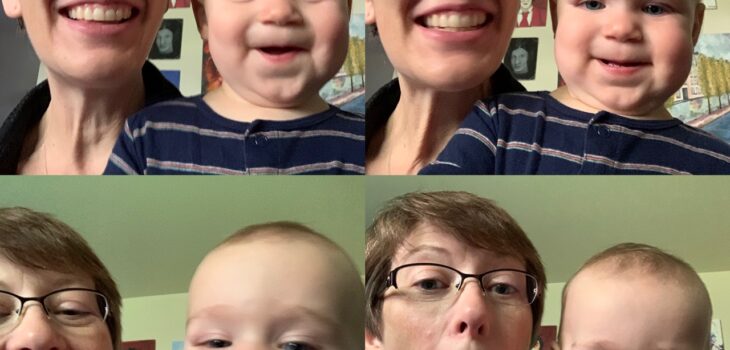
Binge this happiness podcast and learn to be happier,…
I’ve been bingeing a podcast about happiness.
It’s called The Happiness Lab and it’s marvelous. If you listen and take action, you will become happier, too!
A friend suggested it to me. Interestingly, she said that she had been bingeing it as well. She started at the beginning of season one, and was working her way through. She said that it would be a perfect subject for this blog. How right she was!
The Happiness Lab is produced like a radio show. Multiple sources are interviewed, and host Dr. Laurie Santos provides the narrative. Most shows are 30 to 45 minutes, so it’s easy to slide from one to the next.
But the reason you should listen is because of the content. After all, don’t we all want to be happier?
The happiness project
Santos got the idea for the project and when she realized how many of her students at Yale were unhappy, much more so than previous generations. There was a higher incidence of depression and anxiety among these young people, and it concerned her. She decided to offer a course on happiness and expected about 30 students to sign up. It attracted 1,200 students.
The course was moved to an auditorium, the course materials were put online for free, and the podcast was born.
Since the course is offered online, Santos has been able to measure happiness. People who take the course and do the exercises show higher levels of happiness.
One of the taglines of the show is that our “lying minds” turn us away from things that actually will make us happy. Things like gratitude, meditation and helping others. Griping won’t make you feel good, and money and possessions won’t make you happy. Relationships and social interactions (even with strangers) are important, and rituals can help you get over loss.
One of her students said it’s “hippie dippy shit,” and it is. But it works.
Discovering happiness
A lot of the things that they talk about are things that I realized and discovered for myself in the past couple of years. You may remember one time I didn’t even want to use the word happy to describe any aspect of my life. It really had no meaning for me.
Now, I am happy to report that I am happy. It doesn’t mean that every day is perfect and that nothing ever goes wrong in my life. What it means is that on a day-to-day basis, I experience feelings of happiness. I find joy in so many aspects of my life. And it is because of making a conscious effort to seek out those things and to do things to increase and improve my happiness that I am able to be feel this way.
Each episode of The Happiness Lab brings new insight. I’m particularly interested in the brain and why we think and do things. It’s fascinating to hear the science behind it. If you pick out any one of the two seasons or a bonus episode, you’re sure to learn something, including techniques to increase your happiness.
We need a little happiness now
There’s a lot happening in the world right now. Our lives were turned upside down with the global pandemic that has killed more than 180,000 to date in the US alone. Protests over police shootings and systemic racism continue. Fires, tornadoes, hurricanes and floods destroy property, livelihoods and lives. We’ve lost a lot. Our country is deeply divided politically, economically and racially.
Perhaps The Happiness Lab can help us find greater happiness despite what’s happening in the world right now. After all, stress, worry and unhappiness won’t make you feel better. You need to find a balance.
One episode focused on empathy and how belonging to a group can divide us. For example, those who don’t think like us, look like us or share our religion are the enemy. Sometimes, we don’t even recognize them as people who have feelings, hopes, dreams and families. It’s hard to connect with others when you feel that way.
Fortunately, you can cultivate empathy and increase it. Rather than argue, ask someone with whom you disagree how they first came to have their beliefs. Share how you came to your beliefs. You may not share the same beliefs, but you may have had similar feelings or experiences. While it may not be the same as being in someone else’s shoes, simply hearing them out may help you understand and have empathy for them.
I think we all can use more happiness and more empathy. Give The Happiness Lab podcast a listen, and then let me know what you think.
How to Be a Better Writer Tip
Look for inspiration in a podcast
As I said, I don’t often listen to podcasts. But my friend was so enthusiastic about it, I jotted down the name and looked it up soon after we talked.
Am I ever glad I did. The podcast reminded me of how far I’ve come and how much I’ve learned. It also offers practical tips and lots of brain science.
Finally, it offered inspiration. Honestly, I’ve had so many takeaways it was hard to choose just what to say. In fact, this column was about twice as long because I tried to squeeze in too much.
Don’t count out what you listen to or watch for inspiration for your writing. Make time, even if it’s when you’re doing something else like walking the dog or washing the dishes, to think about what you listened to, read or watched. What struck you about it? Are there parts you’re still thinking about? How did it make you feel? If you’re inspired, write about it.



